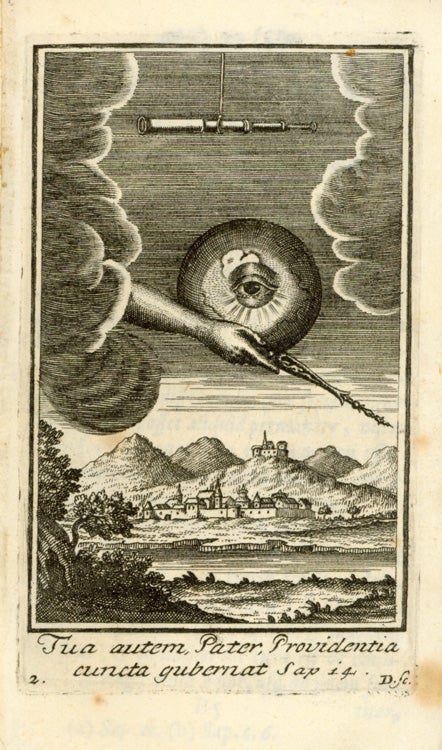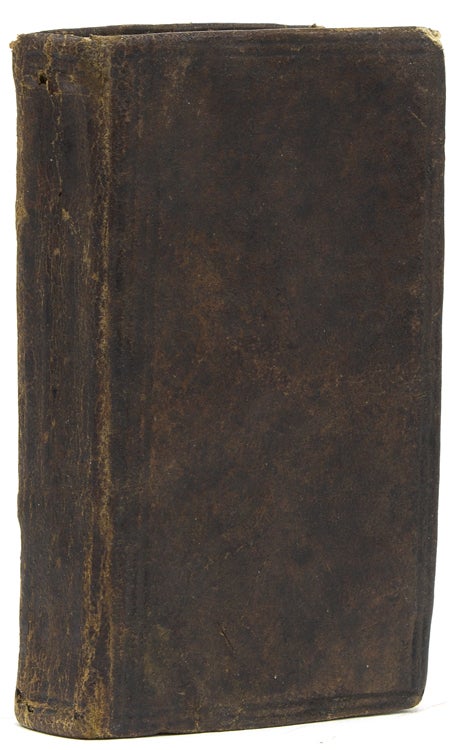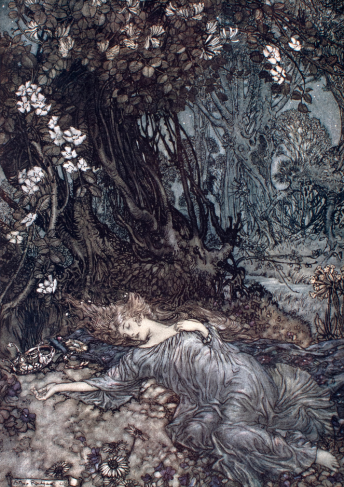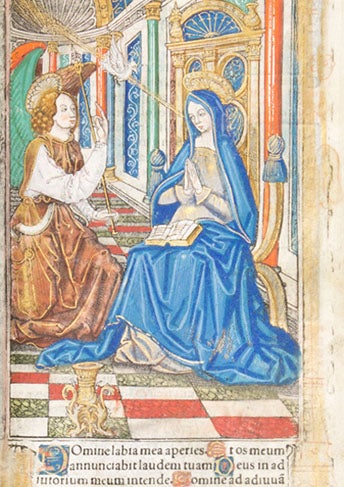Rare Austrian Emblem Book: None in America
Itinerarium Athei ad Veritatis viam deducti; in quo Atheizantium objectae nebulae lucidissimo veritatis Sole disperguntur. Opusculum non minus curiosum, quàm fructuosum, argumentis tam sacris, quàm profanis, & à natur lumine petitis stabilitum. In gratiam Erroneorum spirituum : quorum Principium, Oblivio Dei: Medium vita scelerata: Finis Gehenna.
Vienna: Kürner, 1704.
Price: $2,500.00
About the item
Second (?) edition (first published in Vienna, 1676). Frontispiece and 7 engraved emblematic plates by Franz-Ambros (or Christoph) Dietel. [20], 240 pp. Text in Latin. 1 vols. 12mo. Rare Austrian Emblem Book: None in America. Contemporary sheep, worn, small vertical tear at top of spine, but binding sound, first plate with small chip at outer edge (not affecting image), three small wormholes through first two leaves (reduced to one small hole through the next few), generally quite clean and crisp internally, with only occasional minor spotting. OCLC (no copies of the 1704 edition).
Item #234381
An extremely rare and curious emblem book, with the text in the form of seven dialogues between Vir Politicus and Theologicus by the Hungarian Jesuit theologian Johann Raicsani (or Janos Rajcsanyi). The dialogues concern (1) The Existence of God; (2) Divine Providence; (3) Fate; (4) Predestination and Divine Prescience; (5) Immortality of the Soul; (6) On Gehenna; and (7) Resurrection of the Dead. Along with a frontispiece, each dialogue is preceded by an emblematic engraving by the Viennese artist/engraver Franz-Ambros Dietel (d. 1737?). They are extraordinary, and frequently visionary, pictorial representations of the substance of each of the dialogues. The frontispiece is signed “A. Dietel fecit” and others simply “D.” Dietel and his brother Christoph, sons of Stephan Dietel, were engravers residing in Vienna during the early 18th-century. The plates depart from the usual format of the emblem book in that there is no motto; but the symbolic content of the images, each with an accompanying verse from the Vulgate, places it squarely in the tradition.
Evidently Raicsani’s text was first published in Vienna in 1676; this appears to be the second Vienna edition (possibly preceded by a 1700 edition printed in Passau — the date is uncertain); and reprints appear as late as 1757. It is not at all clear whether the Dietel plates appeared in the 1686 edition. As Franz-Ambros' birth is frequently given as 1682, it may be that the father contributed to the first edition, and the brothers to the 1704 edition.
The fact is, all editions are rare: we can locate no copy of any edition in the united states; only one copy (the Passau edition, at Oxford) in the British Isles; and only two copies anywhere (Bavaria State Library and Austrian National Library) of this 1704 edition.




